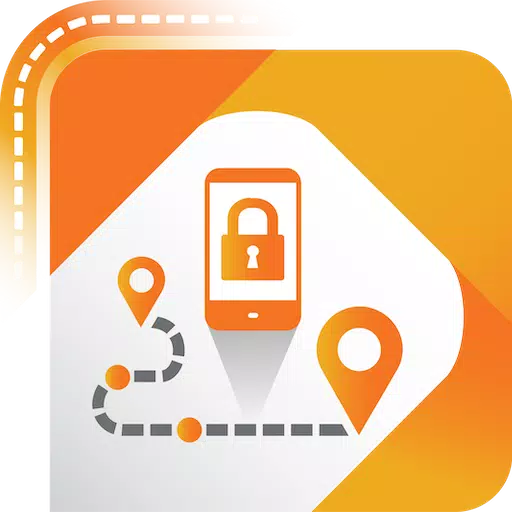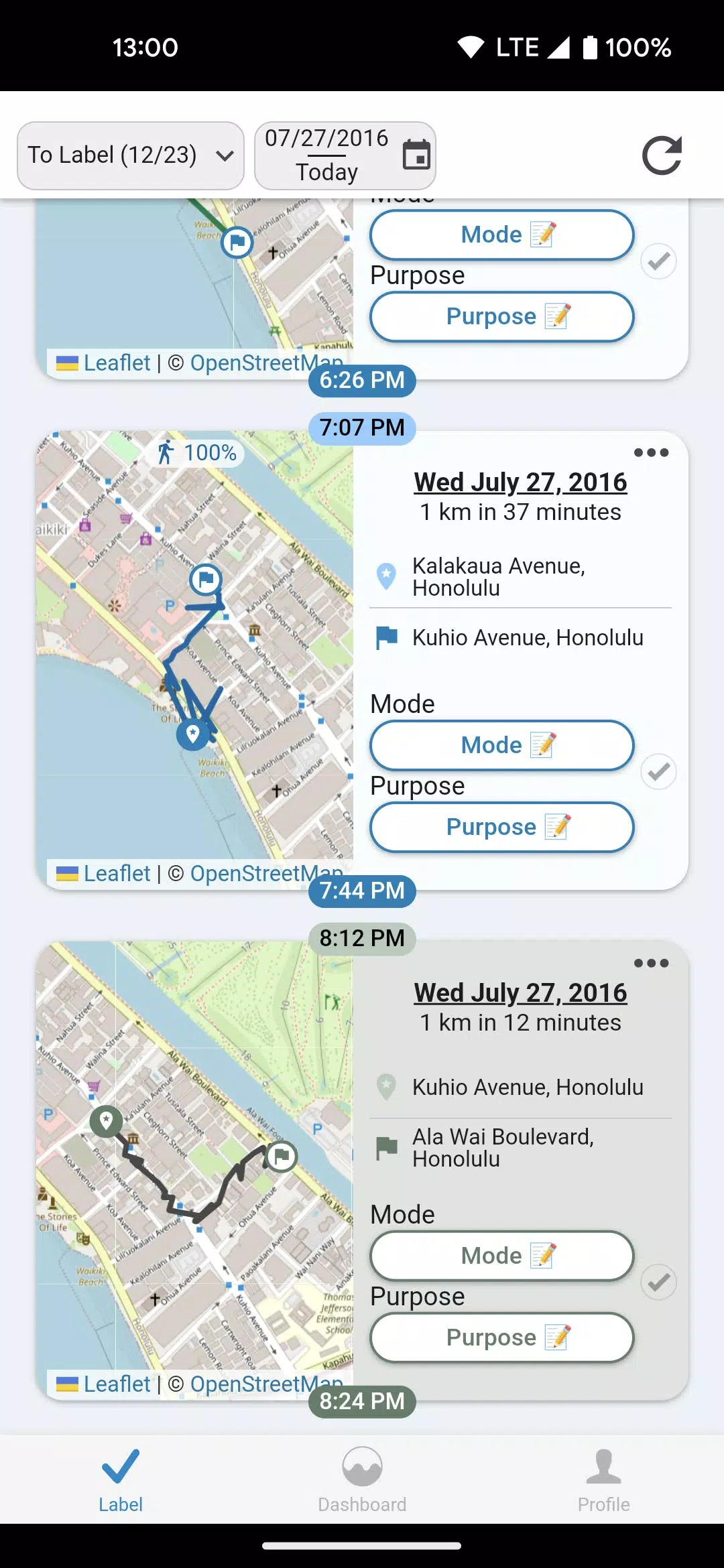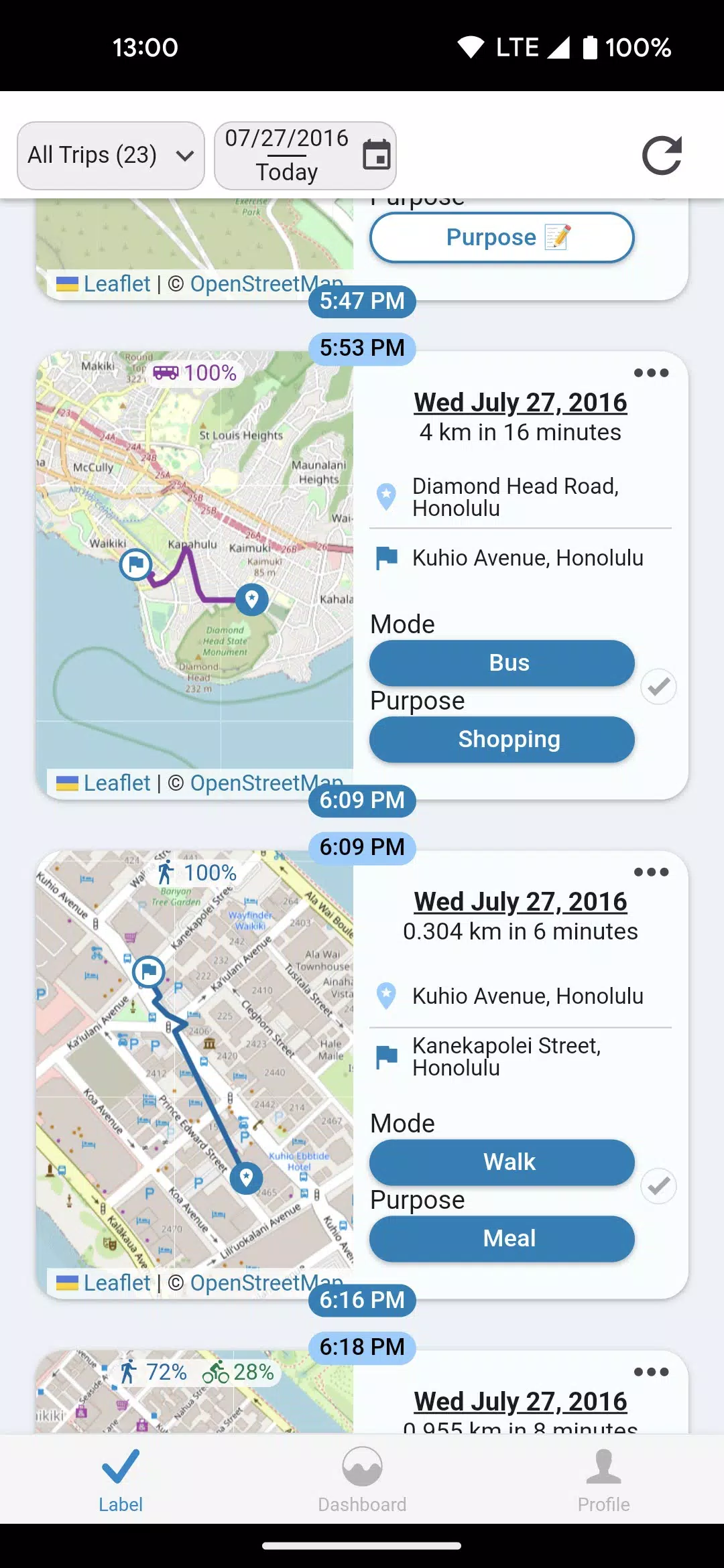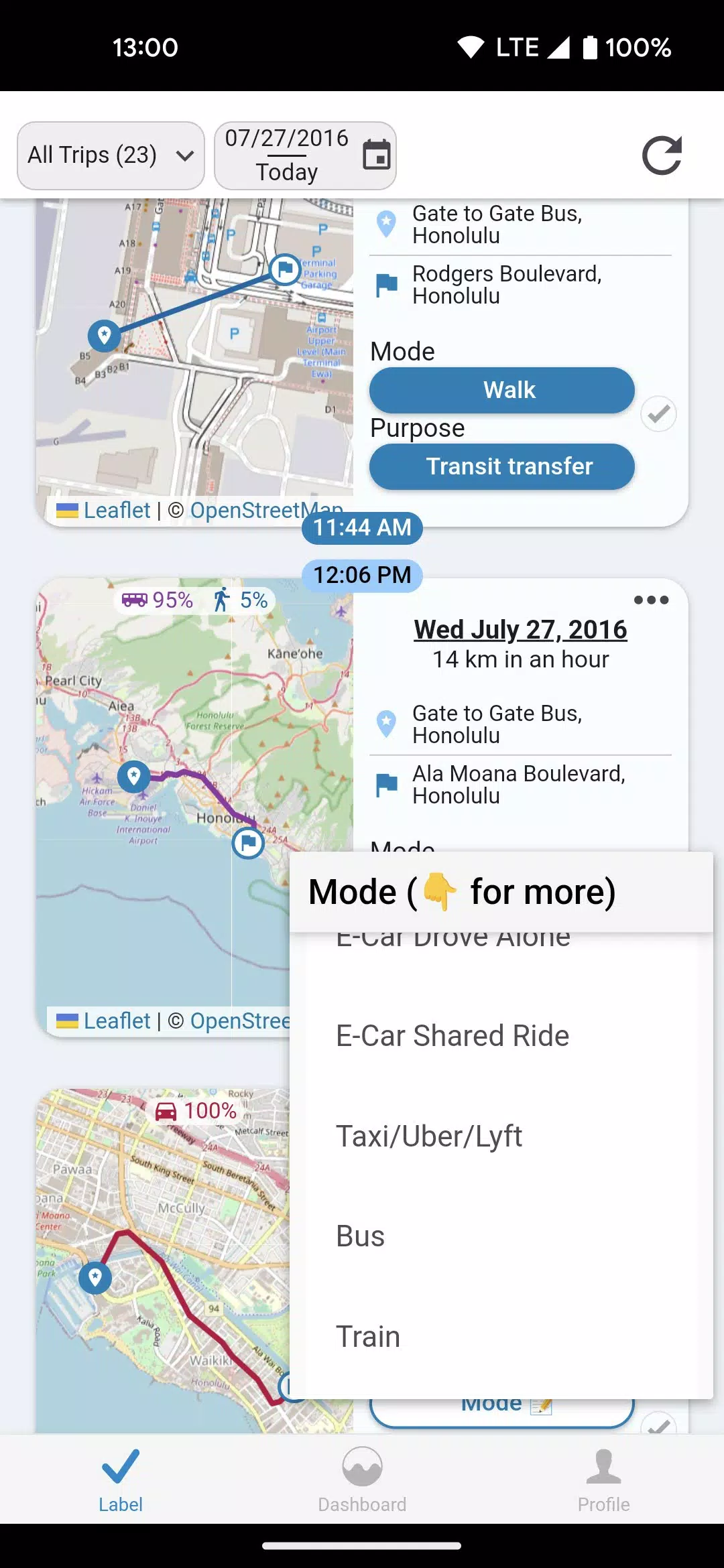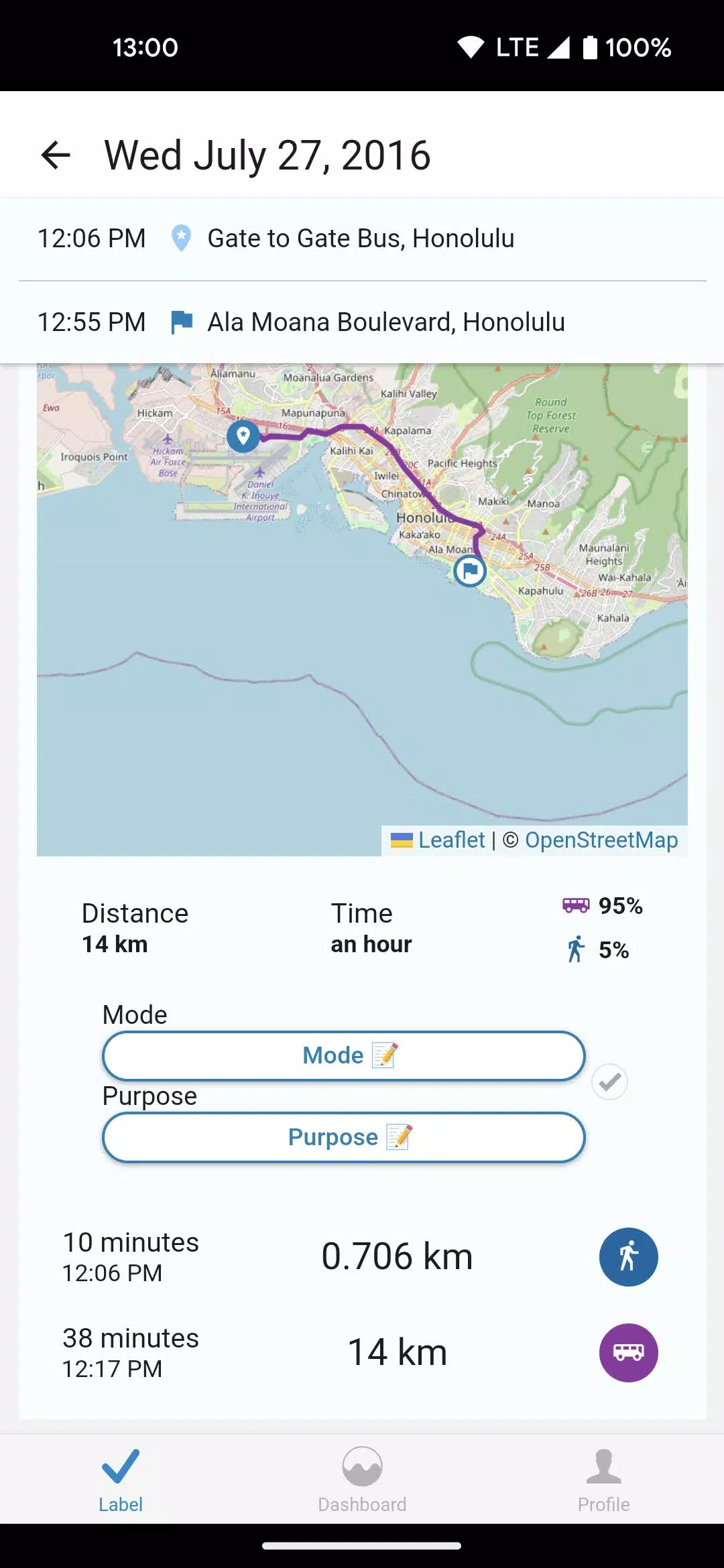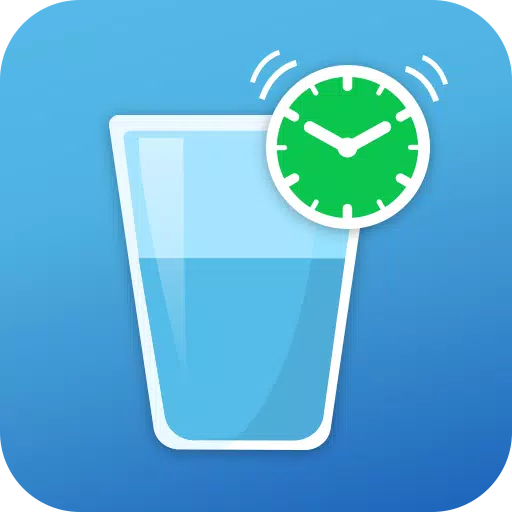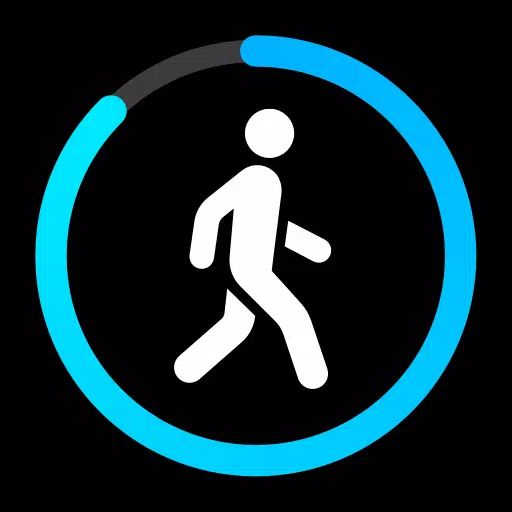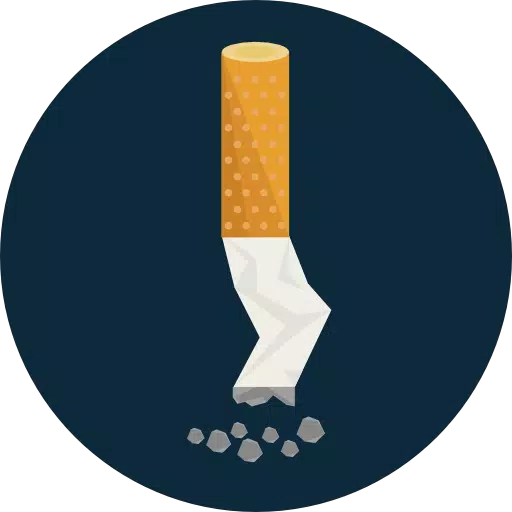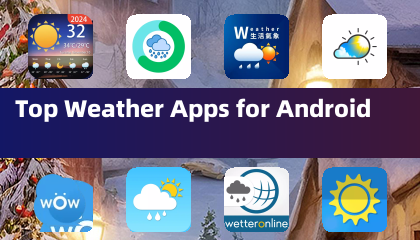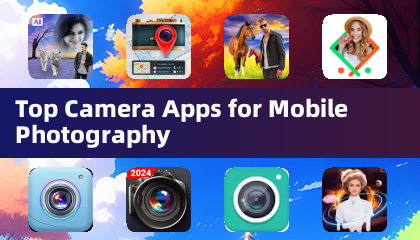The National Renewable Energy Laboratory's Open Platform for Agile Trip Heuristics (NREL OpenPATH, https://nrel.gov/openpath) is a powerful tool designed to help individuals and communities track their travel modes—whether by car, bus, bike, or on foot—and measure the associated energy consumption and carbon emissions. This innovative app not only empowers users to understand their travel choices and patterns but also encourages them to experiment with more sustainable options and evaluate the outcomes. These insights are invaluable for shaping effective transportation policies and planning, ultimately contributing to the development of more sustainable and accessible urban environments.
NREL OpenPATH provides personalized feedback to users about the environmental impact of their travel decisions. Additionally, it aggregates community-level data on mode shares, trip frequencies, and carbon footprints, which is made accessible through a public dashboard. This feature allows for a broader understanding of travel behaviors and their environmental consequences at a community level.
The app leverages continuous data collection and analysis through a smartphone application supported by a server and automated data processing. Its open-source framework ensures transparency in data collection and analysis, while also allowing customization for specific programs or studies. Upon initial installation, the app does not collect or transmit any data. Users must actively join a study or program by clicking a link or scanning a QR code, and consent to data collection and storage before the app becomes operational. For those not affiliated with a partner community or program but interested in assessing their personal carbon footprint, joining the NREL-run open-access study is an option. Data from these individual users may be used as a control group in experiments conducted by NREL's partners.
At its core, NREL OpenPATH functions as an automatically sensed travel diary, utilizing background-sensed location and accelerometer data. Users have the ability to add semantic labels to their travel diary as requested by program administrators or researchers. It's important to note that continuous use of GPS in the background can significantly reduce battery life. To mitigate this, the app is designed to automatically deactivate GPS when the user is stationary, resulting in a minimal battery drain of approximately 5% for up to 3 hours of daily travel.
What's New in the Latest Version 1.9.1
Last updated on Oct 15, 2024
- Make push notifications optional since there are some programs that don't need them

